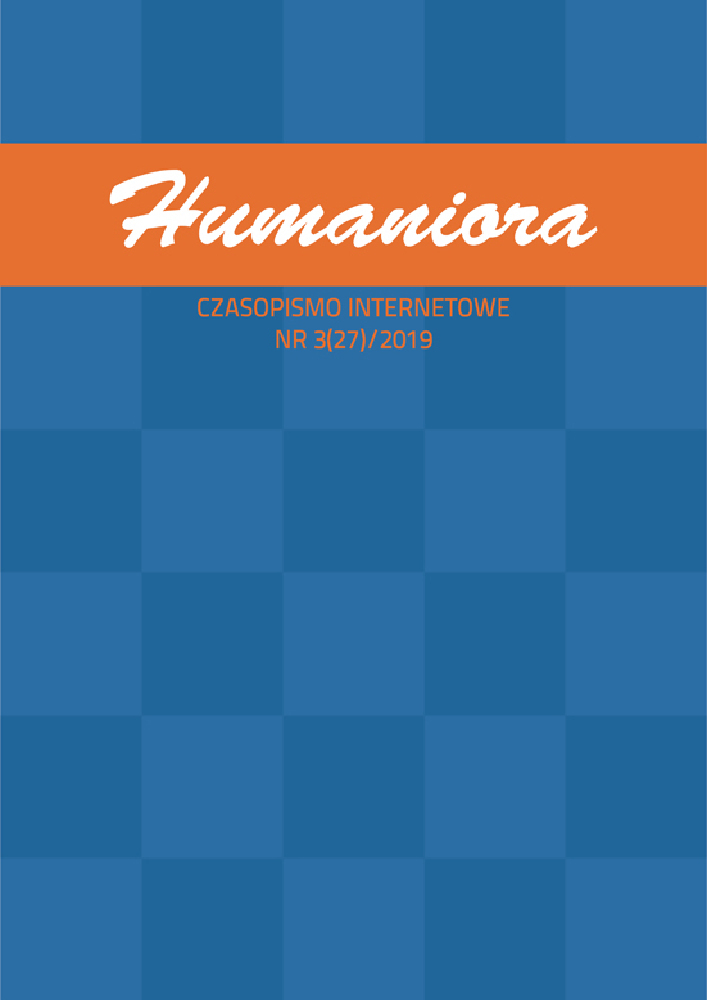Abstract
Viktor Emil Frankl is considered to be a pioneering researcher into the issue of the meaning of life. He carried out a thorough analysis of the theories of his predecessors, and coined his own existential analysis and logotherapy, which have become some of the most popular trends in psychotherapy. Searching for the sources of the motivation for human action, one cannot ignore the phenomenon of religiosity. Over time, due to progressive secularization, it has become impossible to describe the religiosity of man through the existing categories. David M. Wulff laid the theoretical foundation for a new way of looking at religion. On the basis of Wulff’s theories, Dirk Hutsebaut distinguished four approaches to the Christian religion. His model of religiosity enables us to distinguish the types of faith and the ways of thinking about religion, also taking into account non-believers. This article, shows the correlation between religiosity and the sense of meaning of life in adolescents.
References
Allport G.W., Osobowość i religia, Pax, Warszawa 1988.
Frankl V. E., Bóg ukryty, Czarna Owca, Warszawa 2013.
Frankl V. E., Homo patiens, Pax, Warszawa 1984.
Frankl V. E., Nieuświadomiony Bóg, Pax, Warszawa 1978.
Frankl V.E., Człowiek w poszukiwaniu sensu, Czarna Owca, Warszawa 2012.
Golan Z., Pojęcie religijności, w: S. Głaz (red.), Podstawowe zagadnienia psychologii religii, WAM, Kraków 2006.
Jarosz M. (red.), Psychologiczny pomiar religijności, TN KUL, Lublin 2011.
Mariański J., Religia i moralność w świadomości Polaków: zależność czy autonomia?, „Konteksty Społeczne” t. 3, 1(5), TN KUL, Lublin 2015.
Mariański J., Religijna koncepcja sensu życia, „Roczniki Nauk Społecznych” t. XVIII, z. 1, TN KUL, Lublin 1990.
Nowosielski M., Korelaty kryzysu religijnego, Warszawa 2008, UKSW.
Popielski K. (red.), Człowiek – pytanie otwarte, Redakcja Wydawnictw KUL, Lublin 1987.
Soiński B.J., Osobowość a Nawrócenie. Psychologiczno-pastoralna analiza osobowości nawróconych członków zakonów i grup religijnych, Poznań 2010.
Walesa C., Rozwój religijności człowieka w ciągu całego życia, w: S. Głaz (red.), Podstawowe zagadnienia psychologii religii, WAM, Kraków 2006.
Wnuk M., Marcinkowski J. T., Rola wartości dla poczucia sensu życia oraz satysfakcji z życia studentów, „Problemy Higieny Epidemiologii” 91 (3)/2010.
Wolicki M. Człowiek w analizie egzystencjalnej Viktora Emila Frankla, Przemyśl 1986.
Wolicki M., Podstawy filozoficzne analizy egzystencjalnej i logoterapii, Papieski Wydział Teologiczny we Wrocławiu, Wrocław 2001.
License
Czasopismo oraz wszystkie zamieszczone w nim materiały są powszechnie dostępne i mogą być wykorzystywane do celów naukowych, edukacyjnych, poznawczych i niekomercyjnych bez konieczności uzyskiwania każdorazowej zgody autorów i redakcji. Nadesłanie artykułu do publikacji traktowane jest jako zgoda autora na udostępnienie swojej pracy i informacji w niej zawartych do powyżej wymienionych celów. W takich przypadkach należy jedynie wskazać źródło, z którego zaczerpnięte zostały informacje. Pobieranie opłat za dostęp do materiałów zawartych w czasopiśmie lub ograniczanie do niego dostępu jest zabronione.
Przesyłane do redakcji teksty muszą stanowić oryginalne prace, uprzednio nigdzie niepublikowane ani nie przedkładane innym redakcjom lub wydawcom. Autorzy nadsyłanych artykułów ponoszą odpowiedzialność za uzyskanie zezwoleń na publikowanie materiałów, do których prawa autorskie są w posiadaniu osób trzecich. Publikacja materiałów chronionych prawem autorskim jest możliwa pod warunkiem uprzedniego dostarczenia przez autora do redakcji pisemnej zgody właściciela praw autorskich.





